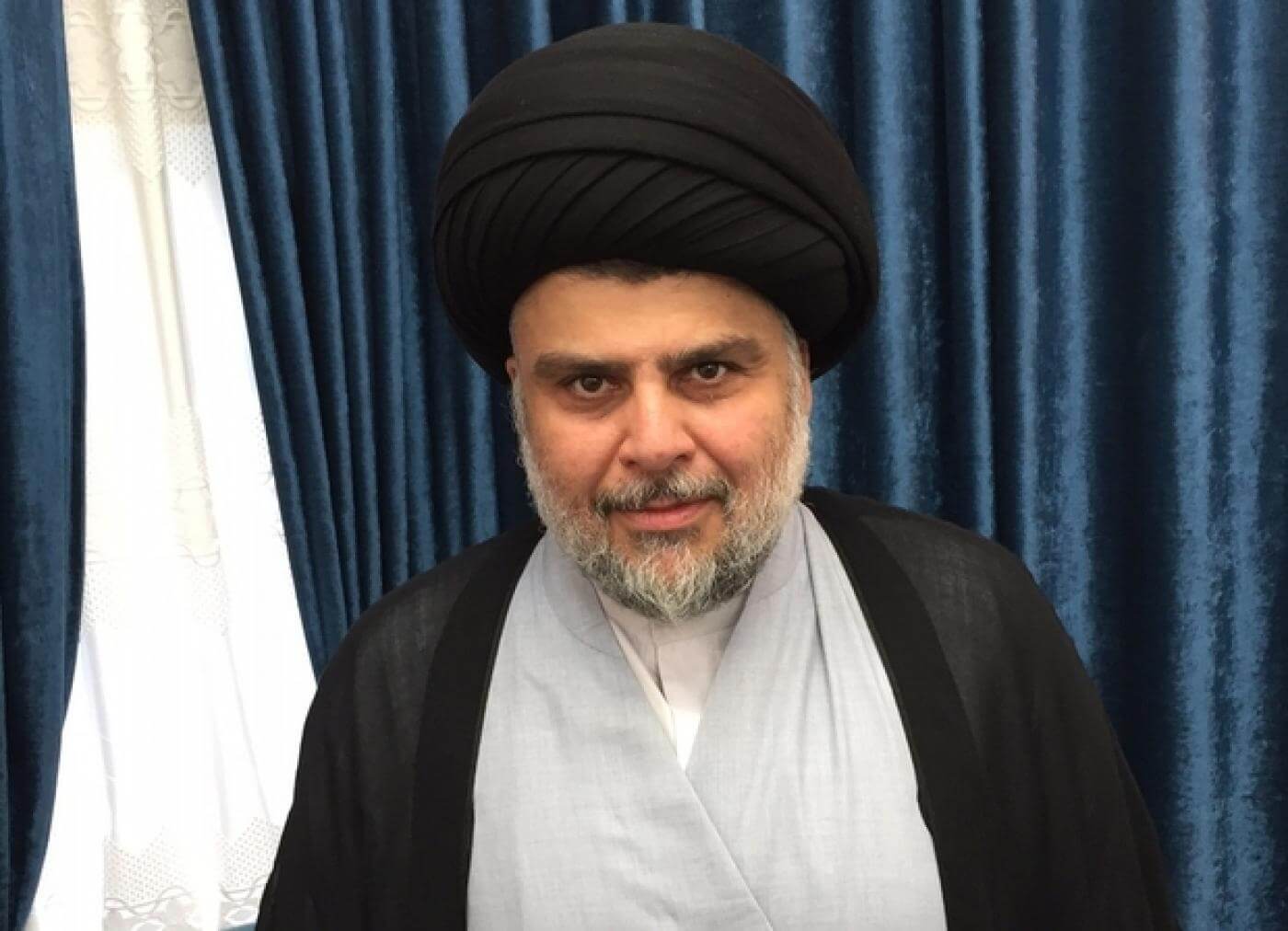Shia cleric Muqtada al-Sadr, whose forces fought the United States (US) during its occupation of Iraq, has claimed victory in the Iraqi parliamentary elections held on Monday. The results came as a blow to pro-Iran parties under the umbrella of the Fatah Alliance, which mostly consist of individuals involved in the Iran-backed Popular Mobilisation Forces (PMF) and the Badr Organization.
The voter turnout of 41% was the lowest on record for Iraq, showing the disconnect between the Iraqi people and politicians. The vote, which had been initially scheduled for 2022, was conducted early to satisfy the Iraqi public, who took to the streets in 2019 to protest against rampant corruption and poor government services.
According to Iraq’s Independent High Electoral Commission, the Sadrist bloc of parties won 75 seats out of the 329-member parliament, more than double of the group that came second. Former Prime Minister Nouri al-Maliki’s State of Law Coalition came third with 34 seats.
However, Sadr’s group will need to form a strong coalition of at least 165 seats if he intends to dominate Iraqi politics and form a stable administration. A strong coalition would also give the Sadrist bloc a greater say in choosing the next President and PM. The coalition forming process may take weeks or longer.
Yet, the election has increased the cleric’s power, given that he won just 54 seats back in 2018. In his victory speech on Monday on state TV, Sadr promised a nationalist government free from foreign interference. “Thank God who has blessed his largest bloc with reform, a bloc that is neither Eastern nor Western, but Iraqi,” he said, adding that all embassies are welcome “as long as they do not interfere” in Iraq’s internal affairs. “If they interfere, we will have a diplomatic response or even a popular response,” Sadr warned.
Sadr has been a fierce opponent of foreign presence in the country, whether by the US military or Iran-aligned militias. For years, he had called for the withdrawal of US forces from Iraq and, according to reports, recently set his sights on reducing Iranian influence in the country.
In 2004, Sadr had called for jihad against the coalition forces and his Mahdi Army was responsible for several ambushes on US convoys and the death of American troops. Although the US had effectively contained Sadr’s militias, his resistance against coalition forces made him a popular figure in Iraq.
The election dealt a major defeat to the Fatah Alliance of pro-Iranian groups. The Alliance, led by Hadi al-Amiri of the Badr Organization, won only 16 seats, significantly lower than the 48 seats it captured in the previous election.
The beating taken by the Fatah Alliance shows the growing unpopularity of Iran-backed militia groups in Iran. During the 2019 protests, activists rallied against Iran’s growing influence in Iraqi politics and voiced their opposition to the Shia militias, including the PMF, which act as an independent security apparatus and have not integrated with the Iraqi military. Iraqis were also enraged when several Iran-backed paramilitaries were accused of killing hundreds of activists during the 2019 protests.
Hadi al-Amiri rejected the election results and called it “fabricated.” He declared, “We will not accept these fabricated results, whatever the cost.” A joint statement made by the Fatah Alliance labelled the elections as “manipulation” and a “scam” and added that it would “appeal against the results” and “take all available measures to prevent the manipulation of votes.”
Meanwhile, Kurdish parties won 61 seats, and the Kurdish Democratic Party (KDP), led by Masoud Barzani, exceeded expectations by winning 32 seats, higher than the 25 it won in 2018. KDP’s rival, the Patriotic Union of Kurdistan (PUK) won only 15 seats and its leaders alleged fraud in the Erbil province in the Kurdistan Autonomous Region.
The European Union Observer Mission in Iraq said the voting was “well managed” and “competitive.” However, it raised concerns about the low turnout and press freedoms. The US congratulated the Iraqi government “on having fulfilled its promise to hold earlier elections.” White House Press Secretary Jen Psaki said that the US hoped that the new representatives “will form a government that reflects the will of the Iraqi people and which can work to address Iraq’s governance, security, and economic challenges.”
Iran also praised the Iraqi government for successfully holding the elections. “Iran’s support for Iraq’s stability and security, saying the Islamic Republic is ready for cooperation with Baghdad on the path toward development and progress in relations between the two nations,” Foreign Minister Hossein Amir Abdollahian said.
Iraq has held five parliamentary elections since dictator Saddam Hussein was removed from power in 2003 by the US-led coalition. The resulting political structure enforced under US guidance has resulted in widespread sectarian violence, especially between Sunni and Shia Muslims.
Following almost a decade of US occupation and war, Iraq was further ravaged by the social and economic destruction caused by the Islamic State. The country is yet to recover from this, and the low voter turnout indicates that many Iraqis are not confident about a new government improving their lives.
Shia Cleric Who Fought US Wins Iraq Elections, Pro-Iran Parties Lose Heavily
The voter turnout of 41% was the lowest on record for Iraq.
October 13, 2021

Shia cleric Muqtada al-Sadr has claimed victory in the Iraq elections SOURCE: MIDDLE EAST EYE
